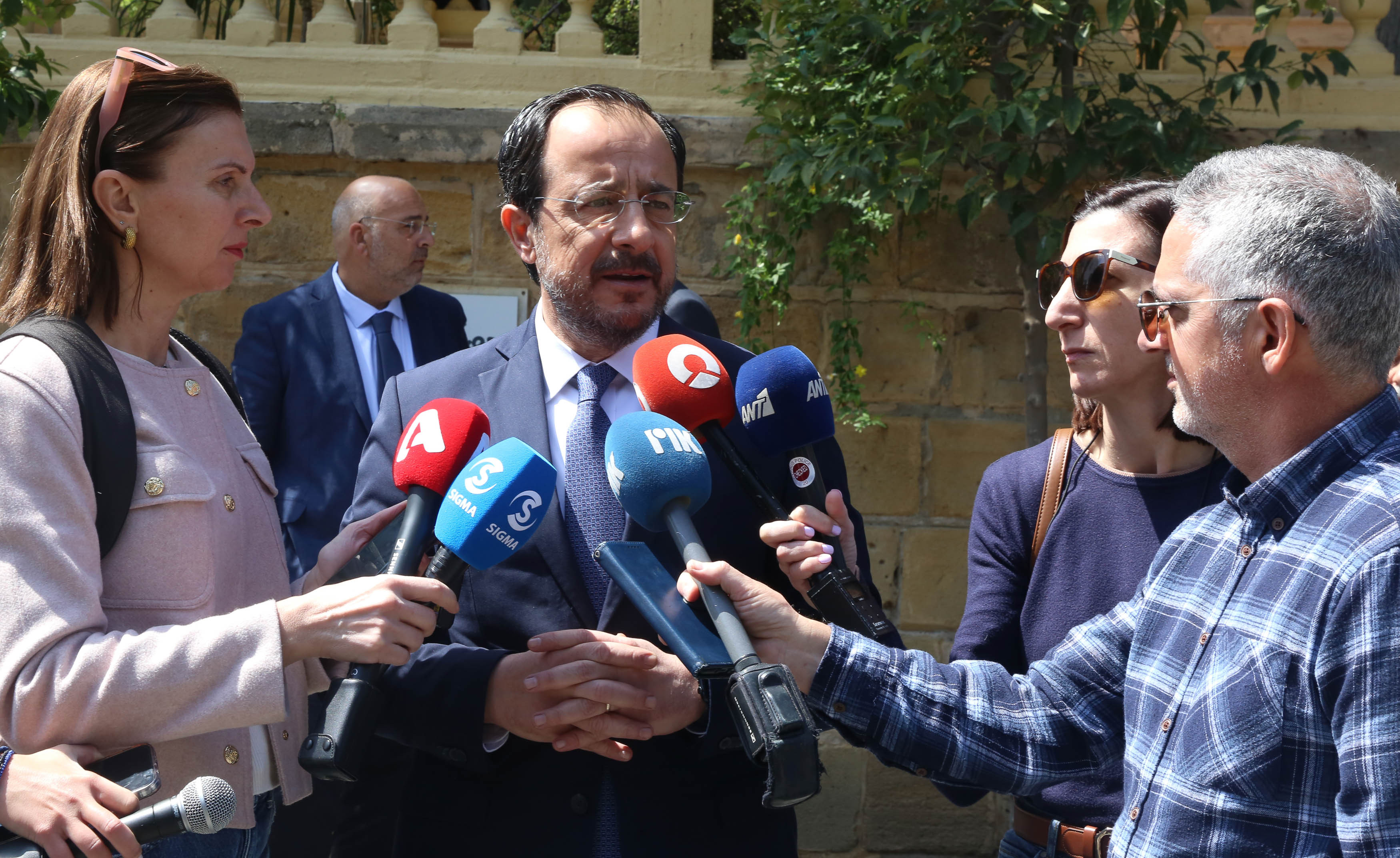Recommendations included in the International Monetary Fund’s (IMF) report on Cyprus reaffirm the government’s “responsible fiscal policy”, President Nikos Christodoulides said on Tuesday.
Many of the IMF recommendations were already included in the government’s planning, particularly that of the finance ministry, with the aim of “strengthening the resilience of the economy”, he added.
Speaking before the opening of the 15th Nicosia Economic Congress, the president said reports issued by the IMF and the European Commission were always taken into serious consideration.
The recommendations “reaffirm the government’s responsible fiscal policy, which if now followed, taking into consideration all current developments, the unstable environment, our country would be in a clearly more difficult position to address the challenges that may arise,” he added.
“We do not demonise the recommendations, we do not dismiss them. Many of these are our own initiatives and we have already started their implementation,” Christodoulides said.
The cabinet, he added, will take decisions and any legislative decisions deemed necessary will be sent to the parliament.
Asked if he was concerned about the recommendation regarding the 13th salary, Christodoulides said the government was not concerned.
“There are many more things that have to be done first and we are already processing them,” he explained.
In a report published over the weekend, the International Monetary Fund (IMF) recommends suspending cost of living allowance for government employees or reducing the indexation coefficient to less than two-thirds of inflation.
The IMF’s Technical Assistance Report had been requested by Cyprus’ finance ministry in July 2024 during an IMF mission visit to the island.
“To generate fiscal space, the priority is to contain growth in government compensation levels as opposed to employment levels. Although the size of the workforce is comparatively moderate, the authorities could gradually reduce it slightly to create modest fiscal space for other expenditure,” the IMF writes.
“This is best accomplished by identifying non-critical positions and abolishing them once they become vacant. Slowing the growth of pay, however, offers greater potential.”
Significantly, the financial institution suggests scrapping the 13th salary in the public sector.
“To create fiscal space sooner, the authorities could consider, as a last resort, reducing overtime or eliminating the 13th-month payment…”
Recognising that such a step would be “highly contentious”, the report adds that “applying certain measures only to new hires is a possibility, but the savings would take far longer to materialise, especially given low turnover in the government.”






Click here to change your cookie preferences